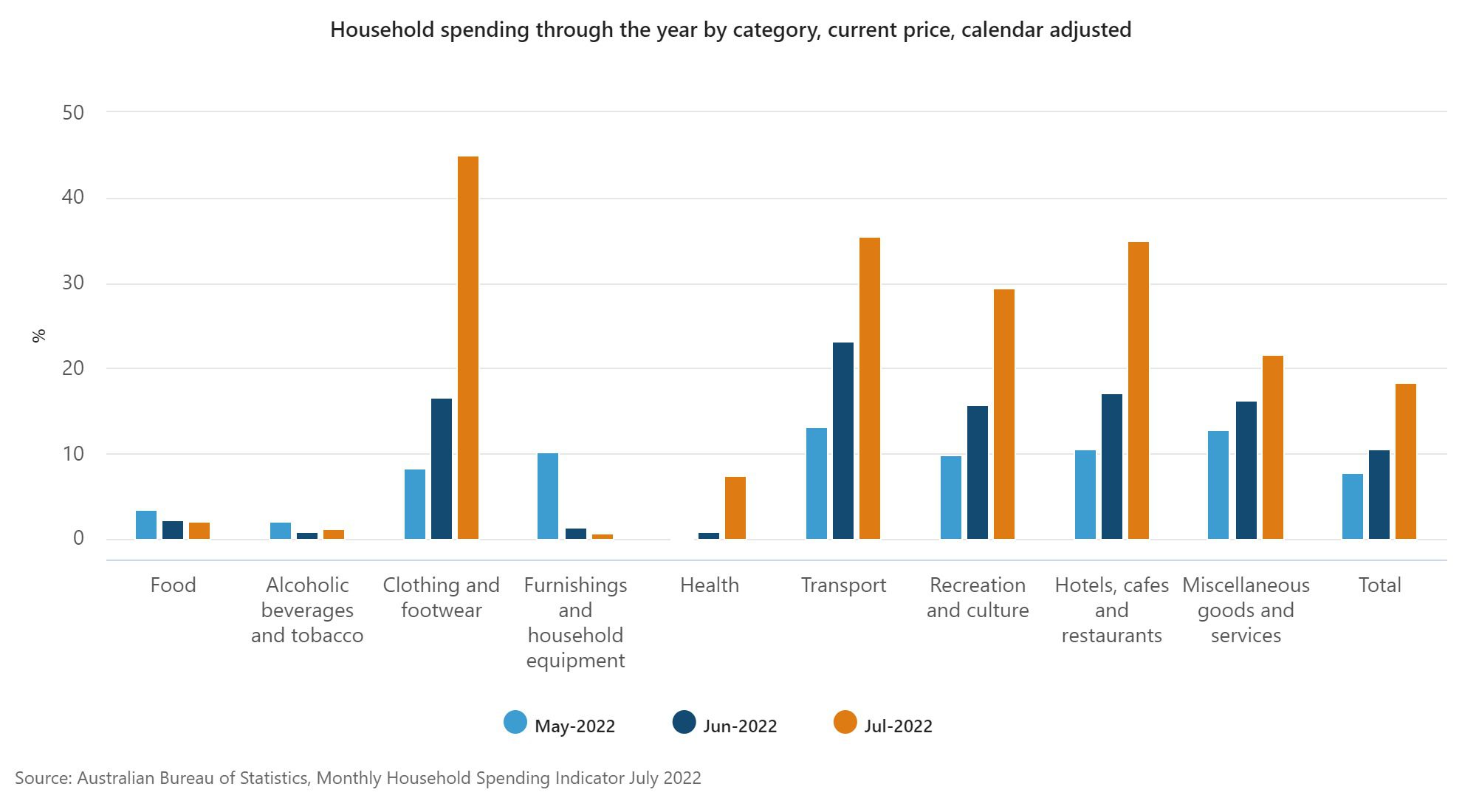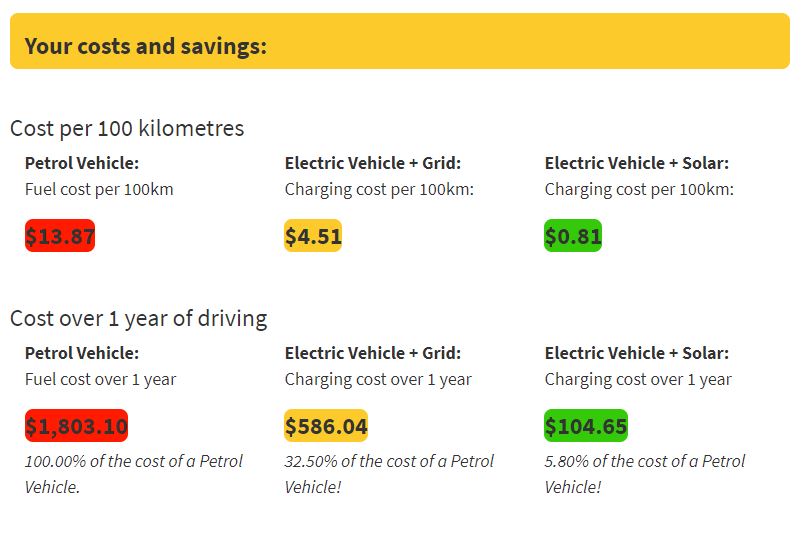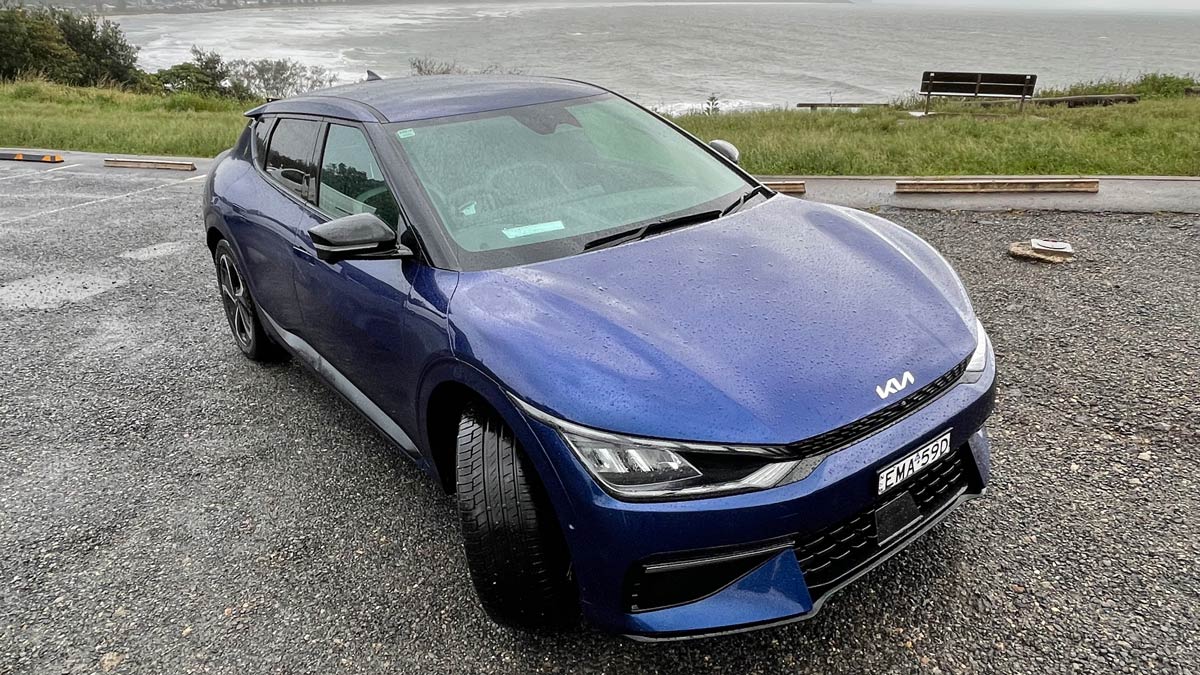Australian households could stand to save thousands on transport costs with a switch to an electric vehicle (EV), according to Solar Citizens which has launched a new online tool to demonstrate exactly how that can be done.
The new analysis comes at a time when national spending on transport hit a record high, rising 35.4 per cent according to new data published by the Australian Bureau of Statistics published on Tuesday in its new Monthly Household Spending Indicator.

The community-based organisation Solar Citizens has released an Electric Vehicle Savings Calculator which provides households with a tool to determine how much they could save by switching to an electric vehicle.
Solar Citizens’ new Electric Vehicle Savings Calculator asks a handful of questions – state, last price for petrol, average kilometres travelled by car each year, etc – and allows you to compare your current spending against what it would cost to drive an EV.

Of course, it’s worth taking into account the fact that, for a large number of Australians, the same increases in costs and spending affecting petrol and energy costs may make a new car purchase virtually impossible, let alone an electric car.
And, it should be pointed out, the Solar Citizens calculator does not include the price of a car, which for many people will be out of reach, and in many cases, significantly higher than the equivalent petrol vehicle – particularly those models that are electrified rather than built up on a new Ev platform.
But Solar Citizens says this price parity issue could have been addressed, were it not for 10 years of policy failure which has seen few available models, hardly any priced below $50,000, and little in the way of affordable second hand EVs.
“Australian households are feeling the pain of soaring petrol prices acutely, yet we could have avoided this if we had secured a stronger supply of affordable electric vehicles years ago,” said Ajaya Haikerwal, clean transport campaigner at Solar Citizens.
“When we recently surveyed over 1,700 of our supporters, the vast majority told us that they are very concerned about how rising petrol prices are impacting their cost of living, and 64% are interested in purchasing an electric vehicle sometime in the next three years.”
In announcing their new Calculator, Solar Citizens highlighted Risyad Abmar, a 27-year-old nurse from Melbourne who is currently paying an extra $200 each month on petrol.
Accordingly, if Abmar switched from his Kia Sportage to an equivalent Kia EV6, he would expect to save nearly $20 for every 100 kilometres driven, which would work out to over $2,000 in a single year of driving.

“Household transport costs have ballooned since April this year, and people are really feeling the strain,” continued Haikerwal.
“Today’s ABS data tells us that unless we can help Aussies make the switch to an EV, transport costs will continue to drain our wallets and bank accounts, and line the pockets of Russian oil barons.
“Petrol prices have rocketed sky-high since the Russian invasion of Ukraine. Everyday Australians are paying the price for our dependence on a volatile international fuel supply, whereas if we had EVs—especially those charged on home solar—we wouldn’t be dangerously vulnerable to foreign oil prices and availability.
“Our calculator demonstrates that if Australians could get their hands on EVs, they could slash their transport costs by hundreds of dollars each year by utilising grid energy, or even better – using the sunshine hitting their solar panels on their own roofs.”
Joshua S. Hill is a Melbourne-based journalist who has been writing about climate change, clean technology, and electric vehicles for over 15 years. He has been reporting on electric vehicles and clean technologies for Renew Economy and The Driven since 2012. His preferred mode of transport is his feet.


